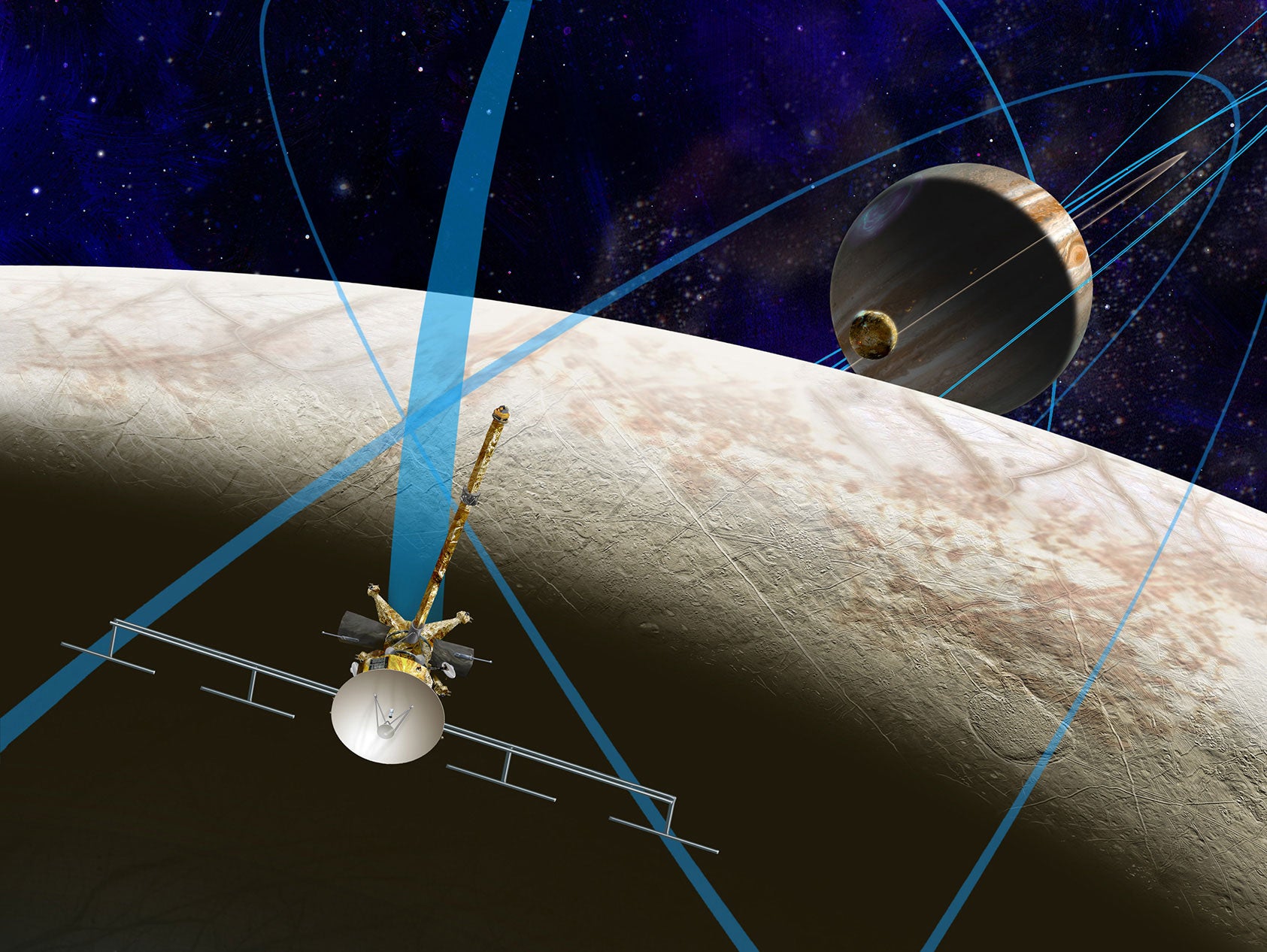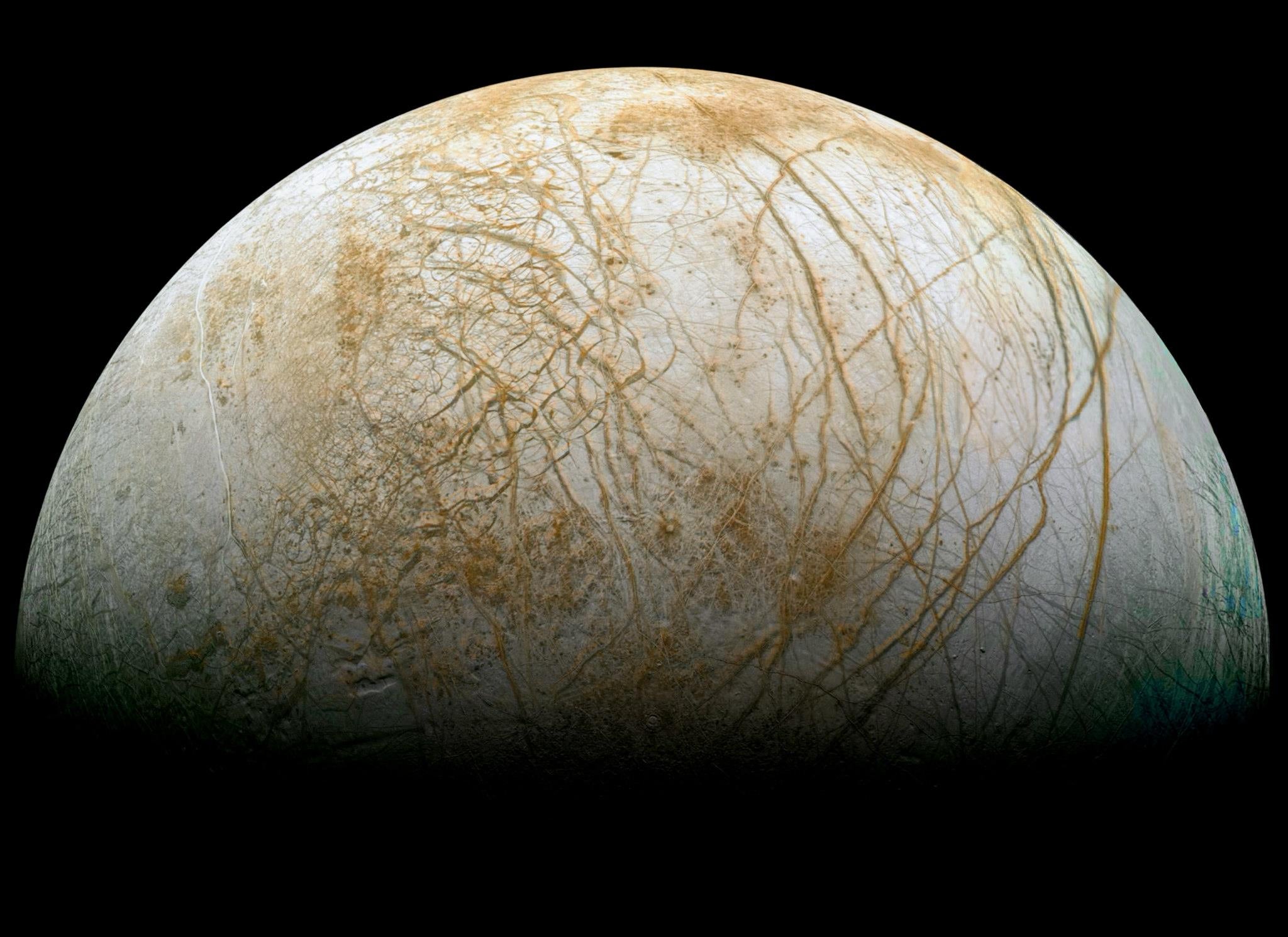Nasa sets aside $25 million for instruments necessary for the 'search for life beyond Earth'
The instruments would be destined to explore Jupiter's moon Europa

The ice-covered moon of Europa is often considered to be one of our best chances for finding alien life in the Solar System - and it seems that Nasa agrees. The US space agency is setting aside $25 million to create the scientific instruments needed for a mission to the satellite.
Nasa says that these tools could “address fundamental questions about the icy moon and the search for life beyond Earth,” and will be selecting 20 proposals from scientists in April 2015 to work out how to best study Europa.
It’s believed that underneath the icy exterior of Europa there is a single, mammoth ocean containing double the water found on the surface of the Earth. It's thought that this mass is kept liquid by the gravitational pull of Jupiter – a force that’s thought to create tidal swells 1,000 times stronger than our own Moon.

Although it was previously thought that the energy of the Sun was necessary for the existence of life (thus ruling out the more distant parts of our Solar System), the discovery of hardy microbes in the most extreme environs on Earth has given credence to theory that basic alien life has developed in the liquid water on Europa.
“The possibility of life on Europa is a motivating force for scientists and engineers around the world,” said John Grunsfeld, associate administrator for NASA’s Science Mission Directorate at the agency’s headquarters in Washington. “This solicitation will select instruments which may provide a big leap in our search to answer the question: are we alone in the universe?”
The newly-announced $25 million is only for scientific instruments however, and Nasa still needs to work out how exactly to get there. The most popular suggestion to date is a spacecraft dubbed the Europa Clipper that would performed repeated close flybys of the satellite. The cost? A mere $2 billion.
Join our commenting forum
Join thought-provoking conversations, follow other Independent readers and see their replies
Comments
Bookmark popover
Removed from bookmarks